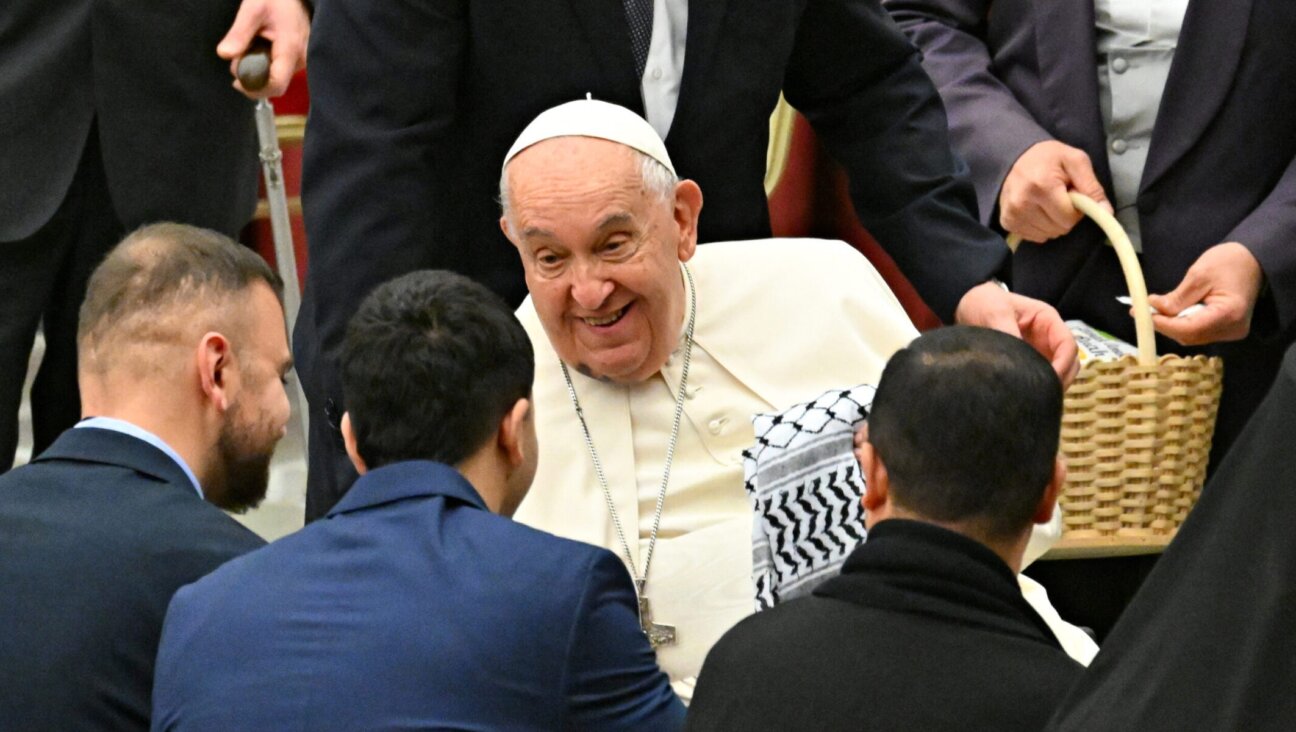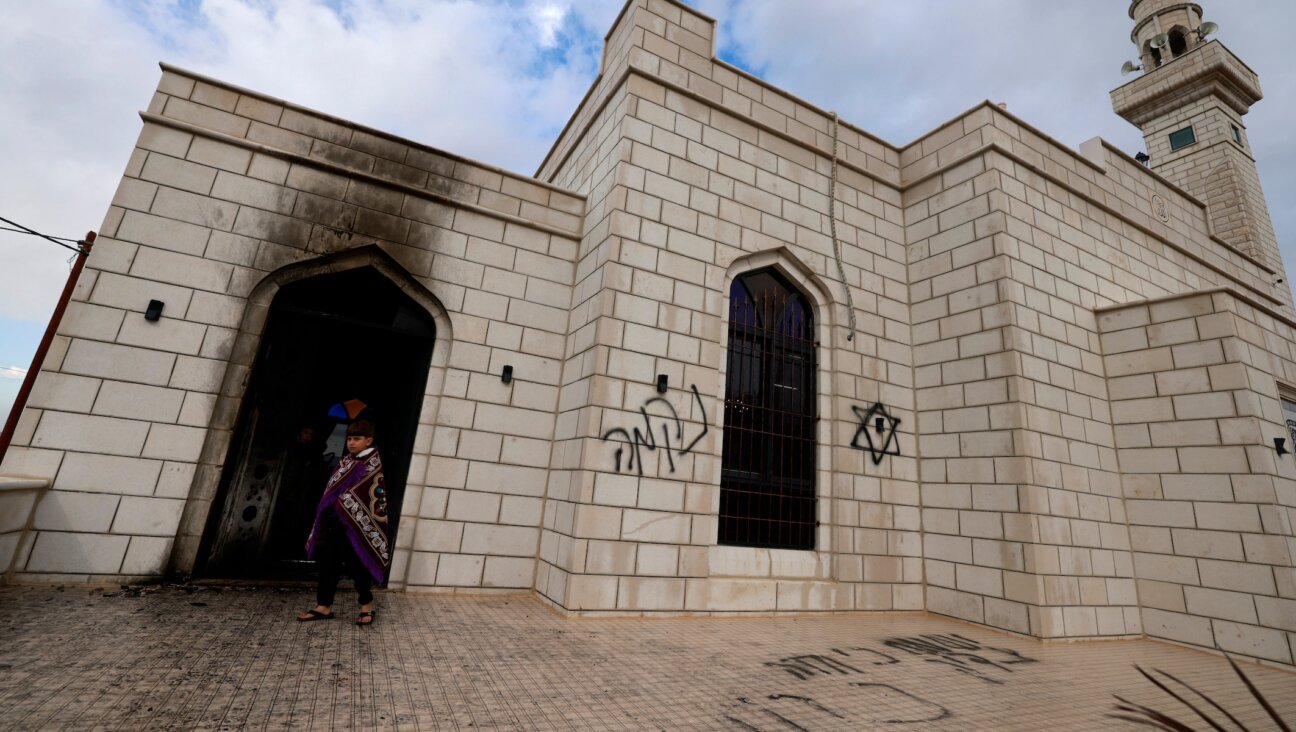Interfaith Effort Boosts Latin Ties

Image by Miriam Lomaskin

Latin Leaders: Rabbi Daniel Goldman of Buenos Aires, Argentina, left, meets with Dr. Juan Suquillo, chair, Islamic Center in Quito, Ecuador, center, and Rabbi Marc Schneier, right, President of The Foundation for Ethnic Understanding (FFEU) in New York at the United States Holocaust Museum in Washington, D.C. Image by Miriam Lomaskin
While international attention is focused on relations between Jews and Muslims in Europe, following the Toulouse shooting, attempts are under way to strengthen ties between the two religious communities in another region: Latin America.
A group of Muslim and Jewish leaders from Latin American and Caribbean nations came to Washington on March 26 as a first step in an effort to forge partnerships between the communities.
The program is an initiative of the Foundation for Ethnic Understanding, which has been organizing Muslim–Jewish dialogue events in the United States and in Europe in which synagogues twin with mosques, and leaders of the two faith communities work together on issues relating to anti-Semitism, Islamophobia, and Middle East peace.
“It is a natural extension of our program,” said Rabbi Marc Schneier, the group’s president.
The delegation to Washington included Jewish and Muslim leaders from Brazil, Argentina, Peru, Ecuador, Uruguay, Barbados and St. Croix. Its members met with representatives of the White House office of Faith Based and Neighborhood Partnerships and with the State Department’s special envoy to monitor and combat anti-Semitism, Hannah Rosenthal. They also met with Farah Pandith, the special representative to Muslim communities. Co-hosting the group, alongside the Foundation for Ethnic Understanding, was the Islamic Society of North America, a national Muslim organization that has been leading the way in interfaith dialogue between Jews and Muslims.
In discussions during the three-day visit, Rabbi Michel Schlesinger of Sao Paulo, Brazil, noted that Muslim – Jewish dialogue is more challenging in Latin America than in Europe or the United States because a large majority of Muslims in Spanish and Portuguese speaking countries are from Arab origin and many are first generation to the Israeli – Palestinian conflict. This background adds more tension to the relationship between the two religious communities.
Rabbis and imams attending the mission to Washington, however, did not delve into the details of the conflict and spoke of the situation in the Middle East only in general terms. In a joint statement issued following the visit, the group expressed “sorrow and pain over the Israeli-Palestinian conflict and the great suffering it has brought to both peoples involved in that conflict.” The statement focused on a pledge to work together against any expression of hatred to either community. ”Bigotry against any Jew or any Muslim is an attack on all Muslims and all Jews,” the statement reads.
Rabbi Schneier, in a March 30 interview, said the purpose of the mission was double: to make clear that Muslims and Jews in Latin America stand willing to “fight for each other” and to work on what he calls a “parallel peace process” in which Jews and Muslims build trust in each other while leaders of Israel and Arab countries work to reach peace.
Latin America has seen, in recent years, a growing influence of Iran and its supporters, with strong ties between the regime in Tehran and leaders of Venezuela, Ecuador and Cuba and with a suspected presence of Iran-sponsored terror group Hezbollah in the region. Muslim participants in the mission, Schneier said, expressed their concern over Iran’s increasing role in Latin America.
Beyond the statements, the first test to this new partnership between Muslims in Jews will be in November, when communities in Latin America will join, for the first time, the Weekend of Twining, in which synagogues and mosques spend time together learning about each other’s faiths and challenges. Leader participating in the mission to Washington promised they will “endeavor to take part” in the events, which have been taking place in the United States and Europe for the past four year.
Contact Nathan Guttman at [email protected]
A message from our Publisher & CEO Rachel Fishman Feddersen

I hope you appreciated this article. Before you go, I’d like to ask you to please support the Forward’s award-winning, nonprofit journalism during this critical time.
We’ve set a goal to raise $260,000 by December 31. That’s an ambitious goal, but one that will give us the resources we need to invest in the high quality news, opinion, analysis and cultural coverage that isn’t available anywhere else.
If you feel inspired to make an impact, now is the time to give something back. Join us as a member at your most generous level.
— Rachel Fishman Feddersen, Publisher and CEO
























